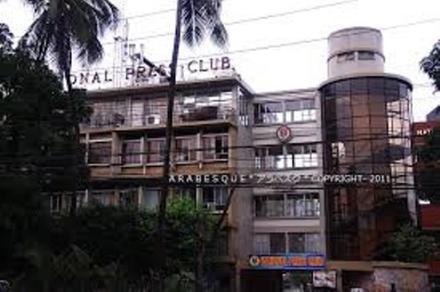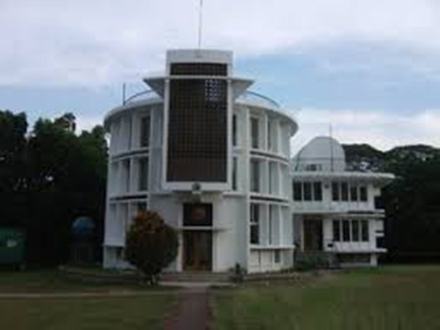A press release intended for distribution at the National Press Club today discussed problems at the Department of Finance’s Bureau of Customs – taunted to be one of the most corrupt agencies not only in the Philippines but in the world.
The customs bureau office of the chief district Acting Collector of Surigao occupied by Ms. Lilibeth Mangsal, is currently vacant according to a press statement that was emailed to this site and was supposed to be distributed at the NPC on Press Night tonight but failed to arrive on time:
PRESS RELEASE
Customs bureau Surigao chief post vacant
The customs bureau office of the chief district Acting Collector of Surigao occupied by Ms. Lilibeth Mangsal, is currently vacant. According to the report of Mr. Ramon Tulfo dated May 23, 2015, the collector allegedly committed serious graft and corruption by delaying the release of a ship, LCT Bulk Carrier M/V Century Summit 3, and its cargo since August 13, 2014.
Collector Mangsal refused to release the shipment because of a personal reason: the shipper dumped Mangsal’s nephew as the broker for the shipment.
As per report of Marlon Ramos, Philippine Daily Inquirer dated May 29, 2015, a mining company Century Summit Carrier Inc. filed criminal and administrative charges at the Ombudsman against Mangsal for alleged arbitrariness in refusing to release its shipment.
Century Summit accused Mangsal of violating Republic Act No. 3019, Anti-Graft and Corrupt Practices Act, for asking it to engage the services of her nephew as cargo broker.
Mangsal should also be held liable for violation of RA 6713, or the Code of Conduct and Ethical Standards for Public Officials and Employees, for the “unjustified delay in the processing of the … shipment, her refusal to reply, as well as her neglect in the performance of specific duties mandated by law.”
As of June 7, 2015, allegedly Mansal has stopped reporting to her office at the Customs for days or weeks. Furthermore, Surigao locals purport that Mangsal is incredibly shamed by her own doing that everywhere in Surigao she cannot even afford to look at other people in the eye and all the time keeps her head down.
We call on government, Department of Finance Secretary Cesar Purisima and his Undersecretary Carlo A. Carag, the new Customs commissioner Albert Lina to appoint a new head of office for the Bureau of Customs Port of Surigao to allow business in that district to proceed as usual.
Without a formal replacement, decisionmaking and operations at that bureau’s station is severely affected and in turn it affects the revenue collections and destroys the goodwill with the clientele of government.
We believe any inaction on the part of the government places us all at a disadvantage and the lack of punitive measures against corrupt officials like Mangsal is extremely detrimental to the government’s transparency campaign, “MATUWID NA DAAN”.
An article about World War III and corruption in the Bureau of Customs states:
In the past, we rooted for the government to come clean with the then prevailing situation at the bureau where the smuggling syndicates are lording over everything taking place in that area.
The syndicate dictates upon the government not to install CCTV cameras, to deliberately sabotage the effectivity of the E2M process, not to use radio net inside the bureau of customs and to refrain from all other activities that will in any way inhibit, constrict, fend off, repel, thwart, stop, prevent or in any way lessen the power and intensity of the syndicate operations at all the Philippine ports (airport, maritime port, etc.)
In effect this situation portrays a government that lost its integrity. The members of the nuclear and the branches of the family of the fake figurehead sitting by the Pasig River, expect a direct regular take from this syndicate and are themselves deeply enmeshed with the activities of the syndicate. Read more from here…
We have a dying government and the people are suffering miserably.
Everyone of us has an obligation to do something, small or big, in our own way to end all the pain and the misery the entire country is going through.
We will answer to the future generations for our undoing so let us start moving now!
For comments and suggestions on this article, please write us at: qualitymodernizationreforms@gmail.com.
Related Articles:
Mon Tulfo on Surigao Port: http://newsinfo.inquirer.net/693071/duterte-poe-tandem-unbeatable
Marlon Reyes: http://newsinfo.inquirer.net/694511/firm-files-graft-case-vs-surigao-customs-exec#ixzz3bSAYnCT9
Gold Bars Smuggling in Surigao
Davao-Indonesia-Malaysia Oil Smuggling Pipeline
Smugglers charged n times, but still continue illegal activities
Competent Commissioner Exec forced by smugglers and politicians to resign



